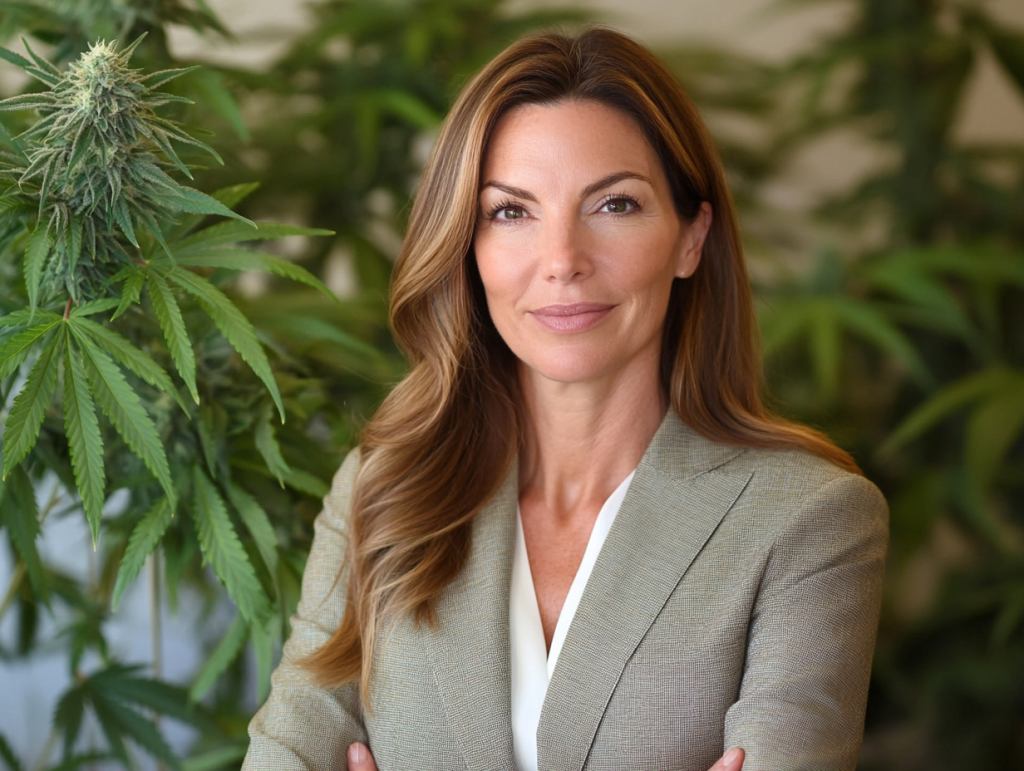New Breakthrough Makes CBD More Effective

Scientists in Australia have developed a new delivery system so that CBD therapies by mouth can become more effective.
CBD is a cannabinoid found in cannabis which is used to treat conditions like epilepsy and multiple sclerosis but is well-known that it is challenging to deliver CBD effectively into the body when taken orally.
Researchers from the University of South Australia succeeded where others had failed by utilizing a new phospholipid-based formulation to greatly improve CBD’s bioavailability.
By binding CBD with single fats (phospholipids), they enhanced its water solubility by as much as 6 times, so much more of the drug can dissolve and become accessible to the body
Laboratory testing showed that CBD-phospholipid complex discharged 67% of its composition in three hours (as against 0% with purified CBD) and increased cellular absorption by over 30%.
This, according to lead researcher Professor Sanjay Garg, will allow patients to reap the same therapeutic effects using less CBD, and will result in more stable and cost-effective therapies.
From an applied perspective, improved CBD absorption may enhance its effectivity – for example, as more efficient seizure management in epilepsy or as more effective relief of symptoms of long-term disease – without having to add more CBD..
The innovation also creates more opportunities towards more efficacious cannabis-based drugs.
With increased interest in CBD’s therapeutics, this kind of formulation science must be able to realize its full potential.
The breakthrough involves optimizing the therapeutic potential of cannabis medicines so patients can derive the maximum advantage from each dose of medicine.
Source: Cannabishealthnews
Czech Republic Allows All Doctors to Prescribe Medical Cannabis for Chronic Pain

Czech patients with chronic pain are increasingly better equipped with medical cannabis nowadays. Since April 1, all general practitioners in Czechia are entitled to prescribe medical cannabis – a prerogative once limited to about 250 specialists.
This policy reform removes restrictions on patients having to seek out a specialist to prescribe them cannabis, making it easier to manage ongoing conditions of pain.
General practitioners are also now able to prescribe, and three months’ supply (per single month) is more convenient to manage.
The amendment also broadens the scope of who can qualify. Minors under 18 with cancer or receiving palliative treatment against incurable ailments can also get cannabis-based drugs
Most of 180 grams of cannabis a month are permitted under the law to patients, though there shouldn’t be an increase in demand because family doctors already prescribe far higher doses of opioids and cannabis as a more benign option, according to General Practitioners Association chief.
He welcomed the decision, adding it was illogical to enable GPs to prescribe morphine but not a far less harmful option like cannabis.
Medical cannabis consumption has been growing continuously in the Czech Republic. Less than 1 kg was sold by pharmacies in 2014, but nearly 320 kg in 2023.
Formally, all of some 8,000 patients are using medical cannabis, but questionnaires reveal hundreds of thousands more are self-medicating with it.
The new rules, which make public insurance cover 90% of the expenses involved in taking regular doses, eliminate bureaucratic hurdles and stigma.
This historic reform positions Czechia as a pioneer among Europe’s leading medical cannabis programs, improving patient quality of life and accepting cannabis as a viable pain relief option.
Source: Expats.cz
Swiss Cannabis Pilot Shows Improved Mental Health for Legal Users

A pilot study conducted in Basel, Switzerland found legally regulated cannabis has mental health benefits.
Two years since Switzerland launched its first pilot project of recreational cannabis sales under “Weedcare,” scientists are observing significant decreases in depression and anxiety levels among users.
It recruited 300 cannabis users who were already adults and eligible to buy regulated cannabis from pharmacists.
To their surprise, users’ intake didn’t increase over the study period, so legal cannabis consumption didn’t lead to more usage. Some of the harmful behaviors lessened, and mental health was improved.
The test provided cannabis of varying potencies (with weaker strains less than 13% THC) of fixed prices. About a third of all products in total were low in THC, reflecting customer demand for lower THC levels, seldom accessible on the black market.
A total of 87 kg of cannabis was prescribed (worth almost CHF 900,000), at CHF 8–12/gram – similar to illegal prices on the streets.
This suggests legalized markets can satisfy demand without sending users to unregulated dealers.
More significantly, there was an improvement in mental health metrics as users had less depression and anxiety after two years of using lab-tested cannabis in a controlled setting.
Managed access was linked with stable consumption and enhanced mental well-being, Basel’s health department stated, terming the findings compelling. Early findings are already shaping policy in Switzerland. Similar pilot schemes launched in Zurich, Lausanne, Bern, and elsewhere.
With operations scheduled to last until 2027, Basel’s trial proves legal cannabis can also be a health bonus.
The government is paying close attention as it weighs broader legalization, with new data revealing legal cannabis sales are beneficial to public health.
Source: Swiss Observer
New U.S. Drug Czar Calls Medical Cannabis “Fantastic” for Patients

In a policy change under Trump’s administration, President Trump’s drug czar was openly praising medical cannabis.
Award-winning reporter Sara Carter, who was appointed to lead the White House Office of National Drug Control Policy, stated on a recent episode of her podcast that cannabis is “a fantastic way” to treat patients with aggressive illnesses like cancer.
Carter also stated she has “no problem” with legalization if properly regulated.
Activists hope having a medical cannabis-supporting representative in this role may win over federal resistance to completely legalizing cannabis.
Carter later commented on cannabis’s medical advantages. “I think certainly cannabis for medical reasons is wonderful, if it’s used by those who are ill with cancer and other ailments,” she explained, seeing it as a way of coping with harsh side effects.
Although federal law currently theoretically prevents the drug czar from endorsing Schedule I drug legalization, Carter’s individual stance aligns with an evolving bipartisan majority sentiment embracing cannabis as having medical utility.
The president himself has also openly spoken in favor of medical cannabis and proposed reconsidering federal cannabis legislation, but has so far failed to take action.
Carter, if approved, will become the second consecutive drug czar to endorse medical cannabis—her predecessor under the Biden administration was also a supporter.
Her appointment sends a hopeful indication to patients and scientists alike that this nation’s principal drug policy agency will approach cannabis with more science and more compassion.
Although major legal changes are by no means certain, Carter’s cannabis-positive stance has been welcomed as a movement toward mainstream cultural tolerance of medical cannabis.
Source: MarijuanaMoment
NYC’s MARY Fest Returns to Celebrate Cannabis Culture and Community

New York City is preparing to host a massive celebration of cannabis culture.
On April 19, Brooklyn will witness an experiential festival in celebration of the profound convergence of cannabis with art, fashion, wellness, and community in MARY Fest.
Positioned as an “elevated 4/20 experience,” MARY Fest isn’t your run-of-the-mill pot expo. Instead of sticking with stoner stereotypes, the festival has a sophisticated backdrop where brands and fans gather in music, product design, and education.
Organizers of the team of MARY Magazine seek to redefine cannabis as a lifestyle and cultural movement.
The Williamsburg day festival features on-premises sales from dispensaries, music performances, interactive exhibits, and panel discussions.
Happy Munkey, a well-known NYC cannabis lounge turned dispensary, serves as official store partner, with in-store purchase legally an option. While as much as consumption may propel much of what MARY Fest accomplishes, education and community are equally crucial to its mission.
There will also be wellness classes, art installations, and interactive displays where viewers are invited to join in. The festival celebrates how cannabis is a component of urban modernity beyond a desire to become high by also dealing with themes like fashion, design, and social justice.
This was only its second annual MARY Fest, a reflection of cannabis’s increasing popularity with New York state’s mainstream markets following legalization. The popularity of last year showed there’s demand for upscale, all-embracing cannabis festivals.
The rebirth of the festival with even more company and creator involvement reveals a favorable cultural shift: cannabis is going mainstream and openly celebrated in one of the world’s biggest cities.
From young entrepreneurs to budding starters, cannabis enthusiasts from all walks of life (21+ years old) are converging into a safe and festive environment. The message of MARY Fest couldn’t be more apparent—cannabis culture today is about innovation, camaraderie, and breaking stereotypes with loads of style.
Source: Stupid Dope


